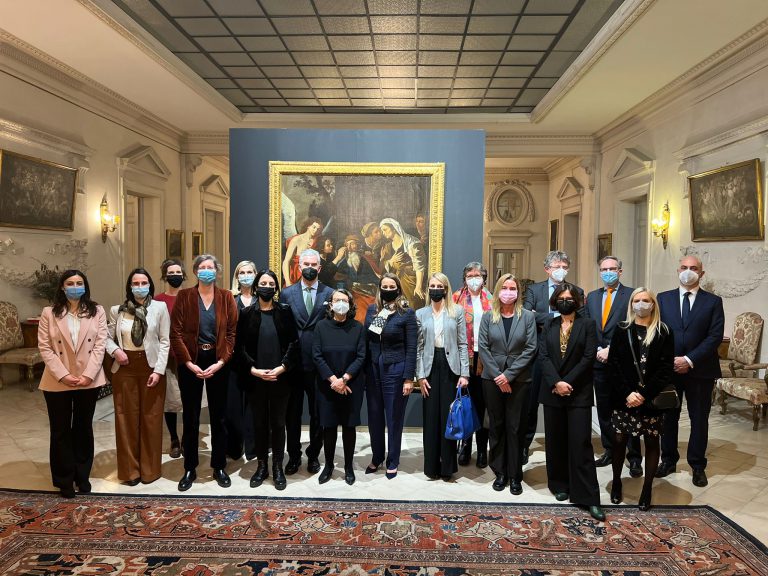(fa fede solo il discorso effettivamente pronunciato)
The real crisis in Europe is not purely financial/economic. It’s a much deeper social/political crisis – linked, among other things, to a dramatic transformation of the way in which our democracies interact within the European space. One of the most brilliant European thinker of our times, Ivan Krastev, recently observed that: “The European project is characterized by policy without politics at the European level and politics without policy at the nation-State level”. I totally agree. The underlying political paradox is the following: the crisis of trust in democratic institutions in Europe is not the outcome of a lack of integration. The opposite is true: it is the outcome of a situation in which integration is on the rise but with unbalanced success. The logic of current proposals for strengthening the euro would take virtually all economic policy decision-making out of electoral politics: the Greek predicament is also a backlash against this.
Mario Monti had to clarify, very recently, that Italy is taking hard fiscal decisions in its own interest – not because of decisions taken elsewhere. This is quite revealing of the problem we have, as pro-Europeans. The new steps we are taking in European economic integration, as a result of the financial crisis, are not felt in most of our countries as new, positive steps in sharing national sovereignty. More often, they are resented, especially in weaker economies, as a deprivation of sovereignty imposed by stronger external actors – from markets to other governments or institutions who are in a position to impose their will.
Not only: take, once again, the Greek example. The democratic decision of the people is apparently at odds with the possibility of staying in the Eurozone. The Irish referendum, at the end of this month, could bring the country out of the fiscal compact. Let me put the question in blunt terms: does the current euro-construction require, to stay on course, the end of national politics? That is, does it require either technocracies or grand coalitions (with the de facto “sterilization” of politics) also at the national level? Hard question indeed, and possibly too hard in the formulation I’m using. But one could reach the conclusion that either we will be able to democratize the UE, or the EU will in the end “technocratize” the nation states.
The picture would be totally different, arguably, if most of Europe lived through a period of growth, not a recession. But this is not the case, and trust in pro-European politicians has reached a new low. The result is dismaying: precisely when a common European political space is taking shape (for the first time in history, the French presidential elections have largely been over European choices), such space is being filled by anti-European forces.
I draw two lessons from all that:
First, we will never get democratic legitimacy, in Europe, if European policies are perceived, by a large share of European citizens, as fundamentally wrong and unfair – as part of the problem instead of the solution. To reverse this trend, we have to make it clear that fiscal discipline and growth are two sides of the same joint effort to improve the socio-economic situation in Europe – for the benefit of all its peoples. We should make this clear and credible. This is the challenge in the new few weeks.
Second, democratic legitimacy is not about technicalities. It’s about reconciling policies and politics. If we want to save the Europeans, together with the Euro, we need to show that national governments are sharing (rather than ceding) sovereignty at the European level, out of a positive vision of a common future.
Shared sovereignty, it’s clear, implies shared responsibility. But when the project of a common future is put into question, first of all, by national political elites, we cannot avoid the consequences: the rise of anti-European forces, the frustration and the grudge of part of our population.
Europe without Europeans? That was possible in the past, when Europe was built – to use a famous sentence – under a veil of ignorance. Nowadays, we need the Europeans to save Europe. And that will not be easy unless we agree, as governments, on a positive agenda for the entire Continent, aiming to give concrete answers to our citizens’ concerns.

